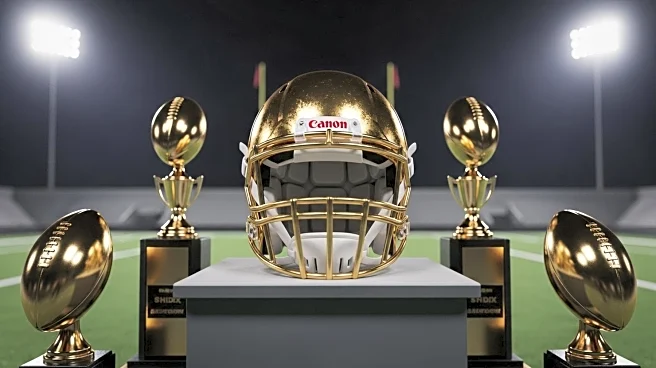What is the story about?
What's Happening?
Stanford University has received a $50 million donation from Bradford M. Freeman, a philanthropist and former trustee, to support its football program. This substantial gift aims to bolster Stanford Athletics amidst significant changes in college sports, including the Name, Image, and Likeness (NIL) developments and the evolving transfer portal. The donation will fund five new football scholarships and institutional NIL support, enhancing Stanford's ability to recruit top talent and compete at a high level. Freeman, a loyal Stanford football fan and former player, has a long history of supporting the university, including endowing the first head coaching position in the nation.
Why It's Important?
Freeman's donation is pivotal for Stanford as it navigates the shifting landscape of college athletics, where football plays a crucial role in financial health due to its impact on media rights and ticket sales. The gift strengthens Stanford's position in the competitive college sports environment, ensuring the university can maintain its tradition of excellence in athletics. By supporting NIL and scholarships, Stanford can attract and retain talented student-athletes, reinforcing its reputation as a leading institution for football scholar-athletes. This move is essential for sustaining the financial model that supports all 36 varsity sports at Stanford.
What's Next?
Stanford will honor Freeman's contribution by naming the stadium tunnel and entrance gate after him, recognizing his impact on the program. The university will continue to adapt to changes in college athletics, with President Jonathan Levin and Athletics Director John Donahoe leading efforts to build a sustainable financial model. Stanford's recent move to the Atlantic Coast Conference reflects its commitment to competing at the highest levels nationally. The donation positions Stanford to strengthen its football program and uphold its values in both academics and athletics.
Beyond the Headlines
Freeman's gift highlights the growing importance of private donations in sustaining college athletics programs amid financial pressures. It underscores the ethical considerations of NIL payments and the evolving role of student-athletes in the commercial aspects of college sports. The donation also reflects the cultural significance of football in uniting communities and fostering school spirit, as well as the long-term impact of alumni support in shaping the future of university programs.















